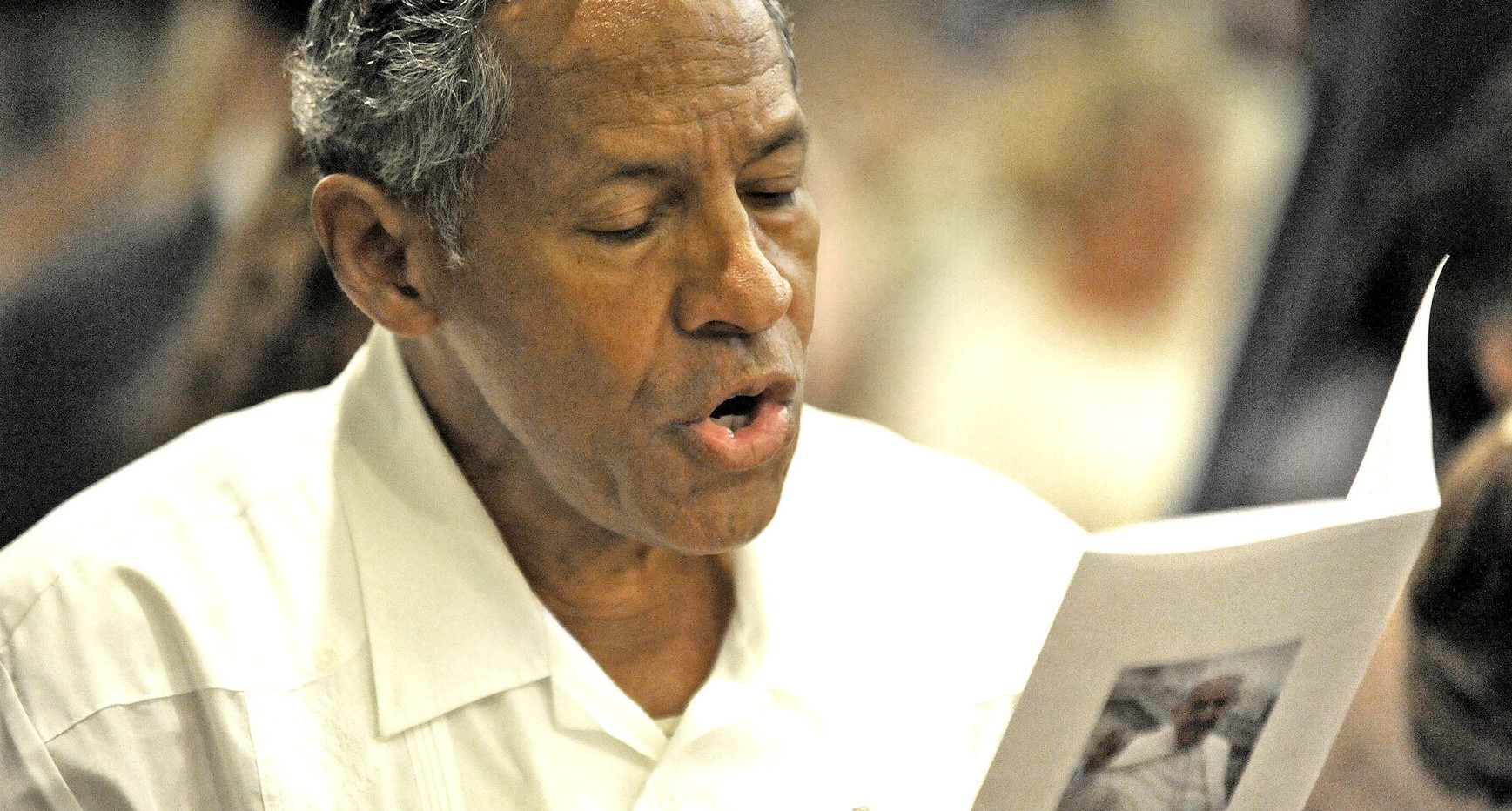Dying to himself, Pope Francis lived for others
-

Archbishop Gregory Aymond delivered the following homily at a Memorial Mass for Pope Francis April 23 at St. Louis Cathedral.
The death of Pope Francis during this Easter time gives us a good opportunity to prayerfully reflect on the mystery of death – in the life of Pope Francis and in our lives.
In the Scriptures today, we hear from the prophet Isaiah: The Lord God will wipe away tears from all faces. Our God comes to save us and to destroy death.
In St. Paul’s letter to the Romans, he says, God did not spare his son, but handed him over to death, and he was raised from the dead. Neither death nor life can separate us from the love of God found in Christ Jesus.
 In the Gospel, Jesus says with great conviction, those who serve me must follow me. Where I am, my servant will be. He goes on to say that when the grain of wheat falls to the ground, it remains just a grain of wheat. But if it dies, it produces much fruit and gives life.
In the Gospel, Jesus says with great conviction, those who serve me must follow me. Where I am, my servant will be. He goes on to say that when the grain of wheat falls to the ground, it remains just a grain of wheat. But if it dies, it produces much fruit and gives life. The Scripture readings of today remind us not only of death in general but also of the death, the life and the ministry of Pope Francis. Let’s focus for a few moments on the Gospel. When the grain of wheat falls into the ground, it remains a grain of wheat. But when it dies, it produces much fruit and gives life.
May I suggest that that describes the way Pope Francis lived his life, his ministry and the way he embraced his illness. He died to himself to live alone for God and to lead us to Jesus. That was his life. As a shepherd he called us to faith and to life with the risen Christ.
After his election 12 years ago, he appeared on the balcony of St. Peter’s Square, and his first words as the new pope were, ‘Pray for me.’ He knew that he needed the strength of God to be a courageous shepherd and to carry out his important responsibilities.
And, whenever he met people personally, his greeting was always, ‘Pray for me.’ I remember that so clearly, as so many did. He was a man of sincerity and humility, and he knew very well that he was dependent upon God, personally as a disciple, and also as the pope of the church.
 He told a story about his election as pope. He was seated next to a cardinal at the conclave, and when he was elected, the cardinal said to him, “Don’t forget the poor.” That led him to take the name Francis, reflecting Francis of Assisi, who cared for the poor and the outcast. Like Jesus and St. Francis, Pope Francis did not see himself as a king, someone enthroned or a powerful ruler. But he saw himself rather as a father in faith, as a brother walking with the people.
He told a story about his election as pope. He was seated next to a cardinal at the conclave, and when he was elected, the cardinal said to him, “Don’t forget the poor.” That led him to take the name Francis, reflecting Francis of Assisi, who cared for the poor and the outcast. Like Jesus and St. Francis, Pope Francis did not see himself as a king, someone enthroned or a powerful ruler. But he saw himself rather as a father in faith, as a brother walking with the people. He was a humble man and a man of great integrity, and he was faithful to the Gospel values of Jesus. He certainly lived the Gospel message of Jesus who said, “When you did it for one of these, the least of my brothers and sisters, you did for me.” He believed that and lived that message.
He calls us by word and example to see the face of Jesus in others, especially those who are in need, especially those who are forgotten by our society and maybe even by our church at times.
One of the powerful images he had of the church was that it was supposed to be a field hospital. He reminded us that the church was like a field hospital because it was to go out to the wounded, to find where the wounded existed and to offer healing and hope to those who were wounded and in need of healing from sin and hopelessness.
 He used that image to remind us that we cannot expect people to come to us as Christian disciples. The church must go to them, where they are wounded in the fields. We must go to them to offer healing and hope.
He used that image to remind us that we cannot expect people to come to us as Christian disciples. The church must go to them, where they are wounded in the fields. We must go to them to offer healing and hope. He also said that God’s name is mercy.
In June 2022, he wrote his spiritual testament, which is required of a pope in preparation for his death. He thanked those who loved him and those who prayed for him. And then he said, “The suffering that has marked the final part of my life I offer to the Lord for peace in the world and fellowship among all people.”
That, my sisters and brothers, is a sign of the grain of wheat dying to give life to others.
